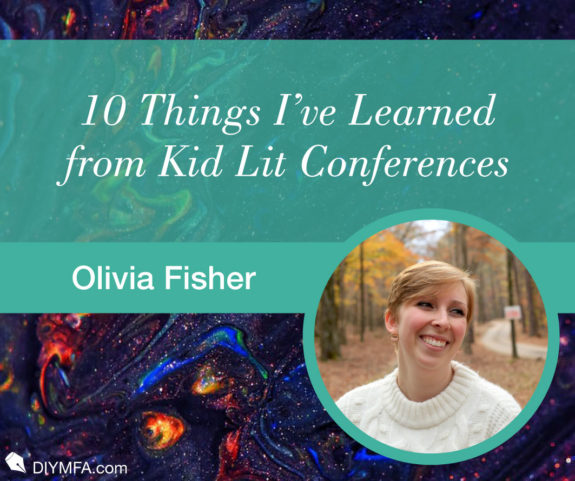Hello fellow kid lit writers! By the time you read this, I will be home from my latest writer’s conference! I’m a member of the Society of Children’s Book Writers and Illustrators (SCBWI), and my regional chapter had their annual conference recently. It was a blast! Not only did I get to attend some wonderful panels where authors, agents, and editors spoke about everything from writing craft to working with an editor, I also got to make some wonderful friends who are just as passionate about children’s books as I am. Since I joined in 2021, I’ve attended four different SCBWI conferences (3 out of the 4 being exclusively virtual). Each one was different, but I’ve gathered some important knowledge from each one that I want to share with you. So, here are the top 10 things I’ve learned from attending kid lit conferences:
1. Every agent is different, but for the most part, they have similar wants
From ghost stories to heartfelt contemporary school stories, agents all have different wants for what they would love to represent. Sometimes it can be intimidating to know if your work will appeal to an agent, but here’s what I’ve learned, as long as your agent is open to the type of manuscript you are sending in (ex: they take middle grade high fantasy and you have a middle grade high fantasy manuscript), there’s really one thing you should focus on before you submit to them: voice.
Agents and editors are aware that a story isn’t perfect when it is submitted to them. There may be plot points that are still rough and will change before the book makes it to publication, but one thing you absolutely must focus on is the voice of your character. It’s the voice that captures an agent. If they fall in love with the voice of your manuscript, the rest can be worked on as you work together.
2. Each author’s path to publishing is different
No author has the same path to publishing. Though the methods may be similar, each author’s journey is unique, and yours will be too, so don’t waste time comparing yourself to another author. Focus on your strengths and fall in love with your writing. This is your journey.
3. Diverse books MATTER
I can’t stress this enough. I’ve listened to many authors of color talk about how much they would have loved to see books representing themselves as children. At the end of the day, children’s books are for children, and children deserve to see themselves as the heroes with boundless potential.
4. Take advantage of consultations for your MS
Many kid lit conferences, especially in the SCBWI, offer consultations for an extra fee. You can meet with an author or agent who will review your work. Take advantage of these consultation opportunities. But, here’s the caveat, only do it if you can choose an author or agent who will be able to offer the best feedback on your work. If you write contemporary YA, don’t choose a middle grade fantasy author to look at your work. They might not be able to offer the depth of feedback that will help your work the most.
5. Children’s book writers are a fun group of people
Honestly, I’ve made so many wonderful friends in the children’s book community, and conferences are a great place to hang out and talk kid lit with an equally passionate group of people. There’s just something fun and relaxed about children’s book writers and authors.
6. Take good notes and write down thoughts you have
My notes from each conference have become a treasure full of insight. Since you can’t go back and watch or relive the conference, having good notes is a must! But be sure to also write down ideas you have for your manuscript and things that inspire you.
7. Conferences are a great way to connect with other writers and find a critique group too
Again, conferences are a great place to meet wonderful writers. Don’t be afraid to ask to form a critique group with people you hit it off with. They may already have a group or not be available, but there’s no harm in asking. I’ve met countless authors who talk about the great help their critique group was in their writing journey.
8. Attending conferences gives you a special chance to meet agents and an advantage at sharing your manuscript
Meeting an agent at a conference not only gives you a chance to submit your work to them, it also lets you get to know the agent and their personality. Do you like their personality? Do you feel you could work with them? Conferences give you a special chance to learn about agents and hear them speak.
9. Do your homework on the speakers BEFORE you attend so you can get the most out of the conference
Conferences are so much more meaningful when I’ve looked up the authors, agents, and editors attending before the conference. It also helps me choose what sessions to attend that might be helpful for the manuscript I’m working on. Do your homework on what the authors write, who and what the agents represent, and who an editor has worked with.
10. Have a plan for after the conference and make sure to take a rest
Even as I type this, my brain still feels like mush from the conference. Every time I attend a conference, I get so loaded up with passion and creativity. I often crash after the conferences, even though I’m also looking forward to pounding away at my manuscript. It’s 100% okay to take a short rest after a conference and give yourself a few days before diving back into your writing. You’ve just sponged up a ton of information. Just don’t let your break last too long.
Those are my top 10 things I’ve learned from kid lit conferences. Tell me in the comments, have you ever attended a writer’s conference before? What was something you learned?

Olivia Fisher is a children’s lit writer and freelance editor with an English degree from BYU-Idaho. When she isn’t dreaming about living in a treehouse or chasing down her two young boys, she enjoys curling up with a book, watching Star Wars, writing her next adventure, and trying to live in the state of child-like wonder that we all secretly, or not so secretly, miss. Follow her adventures on Twitter or Instagram, or hire her for your next editing escapade on Fiverr.







